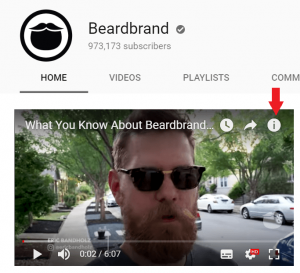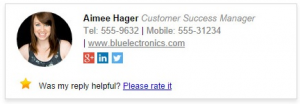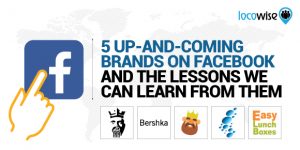The success of any company hinges on its ability to bring on the right people. Ultimately, CEOs want to hire solid culture fits who are aligned with the company’s vision and excited to work towards it. It’s critical to hire people who are motivated: as a CEO, you never want to be in a position where you have to tell people to move faster (nor is it possible at scale). The aim is to lead and inspire; not monitor.
Furthermore, as the adoption of artificial intelligence (AI) skyrockets, companies will need to hire individuals who understand and know how best to leverage the technology. According to one report, 91 percent of companies want to hire workers who are familiar with using ChatGPT.
But finding candidates who fit this description is much easier said than done. And hiring the wrong people will cost you: depending on who you ask, the average cost of a bad hire can be up to 30 percent of the employee’s first-year earnings, according to the U.S. Department of Labor. Another report put the average at a staggering $240,000 in various expenses.
To avoid making costly mistakes, CEOs need to determine whether a candidate is high quality off the bat—not after they’ve been at the company for a year and possibly caused disruption. Aside from the basics like sourcing from a diverse pool, getting back-channel references where necessary, and generally “doing your homework,” much of identifying a good candidate comes down to the questions you ask them.
Here are four questions CEOs should ask to vet potential hires:
Culture fit
The most important question is “silent”: Are you a culture fit for our company?
As famed management theorist Peter Drucker famously said, “Culture eats strategy for breakfast.” I couldn’t agree more: you can hire the most qualified, capable candidate, but if they’re not a good person and a solid culture fit, their expertise counts for almost nothing. In fact, hiring a bad culture fit can eventually cause teams to become dysfunctional and make great people leave the company.
Leadership expert Simon Sinek demonstrates this philosophy using the performance-trust axis developed by the U.S. Navy SEALs. Ideally, we all want to hire people who are high in both performance and trust. But, as Sinek explains, you’re much better off with someone who is medium (or even medium-low) in performance and high in trust versus someone who is high in performance and low in trust. If this is the standard of an organization that produces some of the highest-performing teams in the world, you can bet there’s a reason for it.
The problem is, we can’t outright ask someone if they’re a culture fit, hence why the question is “silent.” The interview process is inherently flawed, and it’s tough to get an idea of who someone is through a series of hour-long meetings in which they’re providing canned responses. The way around this is to keep your conversations as authentic and candid as possible. To get an idea of who your candidate is as a person, share interesting stories about your life and ask them about theirs; inquire about their passions, motivations, and ambitions; and make time to discuss what their focuses are outside of work.
Self-reflection
What’s the biggest career mistake you’ve made and what did it teach you?
Most people want to talk about their accomplishments during an interview, but it’s also critical to hear about their mistakes. The truth is, we often learn much more through our mistakes than we do our wins. Make a point to ask potential hires about their biggest challenges, disappointments, and setbacks, including how they moved through them.
This should clue you in to the candidate’s aptitude to learn and grow, which is arguably more pertinent than their existing skillset. This is especially important as technologies like generative AI continue to proliferate: organizations need to hire people who are willing to embrace new technologies so the company can stay competitive.
Asking someone about their career mistakes can also reveal their values around culture. For example, people often make the mistake of “following” people they know to companies that—unbeknownst to them at the time—have a suboptimal culture. If someone shares this, it’s likely that they value a healthy company culture and want to contribute in positive ways. Whatever mistakes a candidate shares during their interview, keep an eye out for green flags like humility and a willingness to learn.
Motivation
What was the most satisfying moment of your professional career?
Many of the most satisfying things in life are hard; like raising children or owning a business. It’s not all sunshine and rainbows, but at the end of the day it is deeply fulfilling. Asking someone about the most satisfying moment of their career—versus their biggest accomplishments—reveals what truly motivates them and how hard they’re willing to work for it.
In today’s world, everything is an “open book test” in the sense that anyone can learn anything: the internet, online tutorials, and tools like ChatGPT are at everyone’s disposal. Companies need to focus on hiring people who actually know how to harness the resources available to them and take it to the next level. Uncovering what candidates find satisfying provides a window into their inclination to go the extra mile, and sheds light on whether they’re aligned with their purpose.
Tech knowledge
What excites you most about our technology?
Your candidate’s ability to have a conversation about your technology is table stakes…literally. If they can’t sit across from you and have a long-form conversation about what excites them about the technology, its various use cases, and how it benefits the user, they shouldn’t be hired to work at your company.
Of course you’d never expect someone being considered for a marketing role to dive into the technical weeds like a potential head of engineering; but if the candidate couldn’t hold their own in a hypothetical dinner table conversation about the technology, it’s a bad sign. Everyone at your company—from junior hires all the way to the C-level—needs to have some level of understanding when it comes to your technology. Not only that; they need the passion to want to discuss it because it genuinely excites them. Without that, they won’t be of much help to your company on its mission.
As American businessman Robert Half said, “Time spent on hiring is time well spent.” But it matters greatly what you do with that time, and asking the right questions is crucial. By considering the questions above, CEOs have the best chance at hiring individuals who fit their culture and have the zeal necessary to drive the company forward.
(5)








